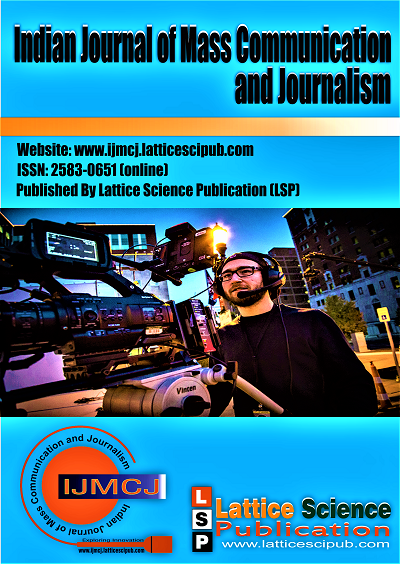Understanding Roles of Non-Government Organizations and the Development Processes
Main Article Content
Abstract
The main objective of this research paper is to acquire an efficient understanding of roles of non-government organizations and the development processes. The individuals, belonging to all communities and age groups are overwhelmed by different types of problems. Furthermore, the social problems of poverty, illiteracy, unemployment, homelessness, crime and violence and gender inequality is found in rural and urban communities. Hence, it is necessary for the individuals to ensure, these problems do not have any types of unfavorable effects on them. The victims of these problems are assisted in order to recuperate. Furthermore, they are imparted with information regarding ways to bring about improvements in overall standards of living. In other words, there is encouragement of counseling and guidance services. The individuals, employed within non-government organizations are well-informed in terms of their job duties and responsibilities. Furthermore, they augment their information in terms of methodologies and procedures, which are facilitating in carrying out tasks in a well-ordered manner and generating desired outcomes. In this manner, non-government organizations are rendering an important contribution in promoting community well-being. Furthermore, they are promoting empowerment opportunities among women and marginalized groups. Therefore, the non-government organizations are rendering an efficient contribution in carrying out development processes in a satisfactory manner. The main concepts that are taken into account in this research paper are, understanding the significance of roles of non-government organizations and the development processes, roles of non-government organizations and the development processes and advantages of roles of non-government organizations and the development processes.
Downloads
Article Details

This work is licensed under a Creative Commons Attribution-NonCommercial-NoDerivatives 4.0 International License.
How to Cite
References
Banaji, M.R., & Heiphetz, L. (2009). Attitudes. Retrieved October 02, 2023 from http://www.fas.harvard.edu/~mrbworks/articles/2010_attitudes.pdf
Pickens, J. (2005). Chapter 3 Attitudes and Perceptions. Retrieved October 02, 2023 from http://healthadmin.jbpub.com/Borkowski/chapter3.pdf
Prudence. (2020). Retrieved October 02, 2023 from Merriam-webster.com
Social Skills: Definition and Examples (2020). Retrieved October 02, 2023 from indeed.com
Souders, B. (2020). What is Motivation? A Psychologist Explains. Retrieved October 02, 2023 from positivepsychology.com
Kumar, Dr. K. (2023). Psychological Impact of social media on Rural Youth: A Study. In Indian Journal of Mass Communication and Journalism (Vol. 2, Issue 4, pp. 10–15). https://doi.org/10.54105/ijmcj.d1044.062423
Das, Dr. S. S. (2023). Rising Popularity of Internet Memes in India: A Media Psychology Perspective. In Indian Journal of Social Science and Literature (Vol. 2, Issue 3, pp. 5–9). https://doi.org/10.54105/ijssl.c1058.032323
Perasso, G., Maggiore, A., Chiara, A., & Camurati, G. (2020). Telematic Intervention based on the Play Specialist Approach in the Covid-19 Era: Benefits for Parents of Children with Clinical Conditions. In International Journal of Preventive Medicine and Health (Vol. 1, Issue 1, pp. 1–7). https://doi.org/10.54105/ijpmh.a2005.111120
Kedar, S. V., & Rokade, S. (2019). Recognition of Emotional State Based On Handwriting Analysis and Psychological Assessment. In International Journal of Engineering and Advanced Technology (Vol. 8, Issue 6, pp. 4395–4402). https://doi.org/10.35940/ijeat.f8960.088619
Joshi, S. C., Gupta, K., & Manektala, S. (2022). Misinformation, Public Opinion, and the Role of Critical Thinking. In International Journal of Management and Humanities (Vol. 8, Issue 9, pp. 15–18). https://doi.org/10.35940/ijmh.i1483.058922





